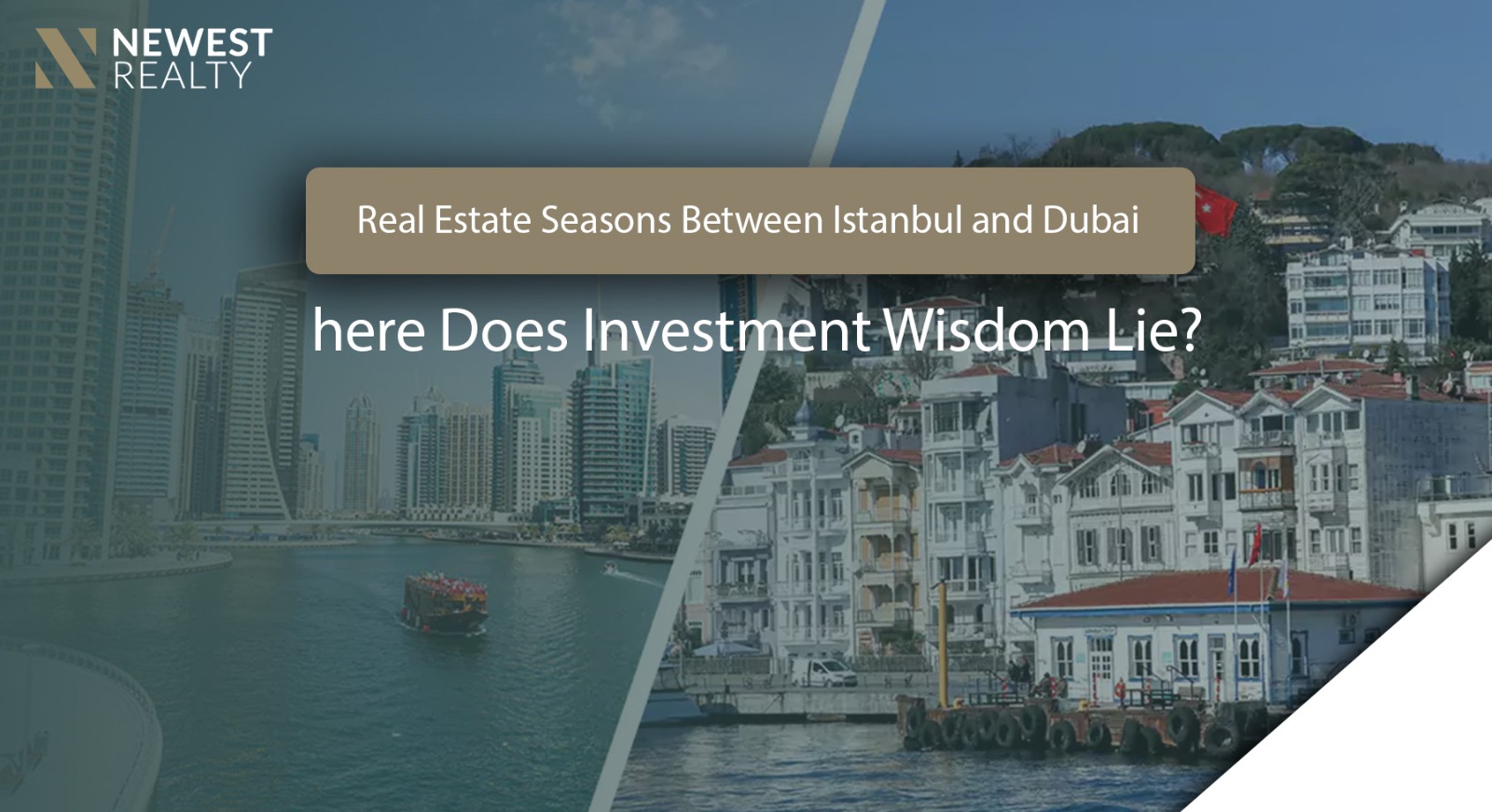Collapse or Opportunity? Real Estate Seasons Between Istanbul and Dubai – Where Does Smart Investment Lie?
In a world experiencing rapid changes on both economic and political fronts, the key question for investors is no longer just “Where should I invest?” but rather “When and where does timing become the critical factor?” While Istanbul’s real estate market often takes center stage, Dubai frequently steals the spotlight, and occasionally we hear about promising opportunities in Europe or even the U.S. However, the deeper truth lies in understanding what are known as real estate seasons.
What Are Real Estate Seasons?
Just like there are tourism seasons, certain cities experience real estate booms triggered by temporary factors—such as government incentives, residency or citizenship programs, or fluctuations in interest rates. A smart investor doesn’t chase trends. Instead, they seek out opportunities before they become public talk.
Dubai: A Case of Rapid Rise... and Temporary Fall
Between 2003 and 2006, Dubai experienced an enormous real estate boom after opening its market to foreign buyers. Prices skyrocketed, but when the global financial crisis hit in 2008, the market collapsed. Some properties fell from AED 1 million to less than AED 500,000 within months. Why? The growth wasn’t built on strong economic fundamentals—it was driven by speculative demand.
Istanbul & Turkey: A Repeat of the Real Estate Bubble?
A similar pattern emerged in Istanbul between 2020 and 2023, as a surge in property demand was fueled by those seeking Turkish citizenship or residency through real estate. As demand rose, prices climbed to unrealistic levels, showing signs of a real estate bubble—just like Dubai 15 years prior.
Locals vs. Expats: The Real Investment Equation
In Dubai, expats outnumber citizens, meaning the real estate market heavily relies on foreign investors. This is risky. If visa rules change or residency is revoked, many are forced to sell—often at a loss.
In contrast, Istanbul benefits from a large domestic population (over 15 million Turkish citizens). This creates a natural balance between local and foreign demand. Although the market has cooled in some periods, properties in prime locations have largely retained their value—and even seen rent increases.
Timing Is Everything
Real estate investing is not an emotional decision. Don’t be dazzled by luxury or city charm. What you need to look for is the price bottom—the moment when prices are at their lowest, but signs of demand recovery are emerging.
Opportunities don’t last forever in one city. They shift—from Istanbul to Dubai, Cairo to New York. Smart investing means buying before the trend, and selling when everyone else is rushing in.
What About the Future?
- Turkey: With interest rates expected to decline, the real estate market may bounce back between 2025 and 2027—supported by government incentives and improved financing options.
- Dubai: As some properties hit record highs (e.g., studios for over $200,000), investor caution is beginning to grow.
- Syria: Despite ongoing challenges, it could become a major investment opportunity if political stability and real economic recovery take root.
Final Thought: Don’t Fall for the “Best City” Trap
There is no permanent “best city” for real estate investment. It’s about timing, opportunity, and economic cycles. Property prices don’t rise just because a city is beautiful or famous—they rise due to real demand, favorable policies, and a healthy balance between residents and investors.
If you're thinking about real estate investment, separate your emotional attachment to a place from the cold logic of profit and risk. Let data and strategy—not passion—guide your decisions.


